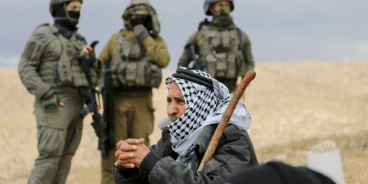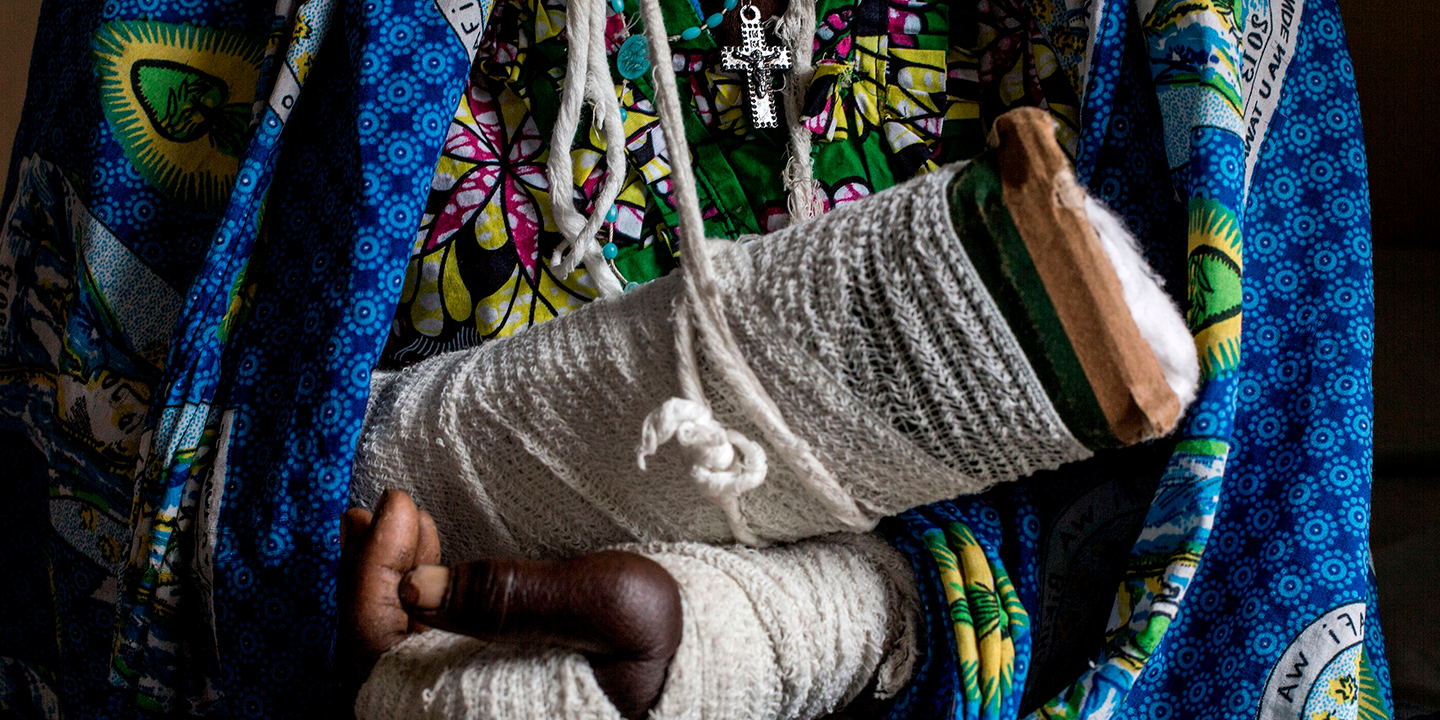

Atrocity Alert No. 331: DR Congo, Bangladesh and Mozambique
Atrocity Alert is a weekly publication by the Global Centre for the Responsibility to Protect highlighting situations where populations are at risk of, or are enduring, mass atrocity crimes.
CYCLE OF DEADLY VIOLENCE CONTINUES IN EASTERN DR CONGO
Fighting and deadly reprisal attacks between armed groups in the Democratic Republic of the Congo’s (DRC) Ituri Province has killed at least 60 people in one week alone. The spate of violence erupted on 7 January following the killing of an ethnic Lendu teacher, who members of the Cooperative for the Development of Congo (CODECO) armed group claim was killed by “Zaire militants.” CODECO, whose members are predominantly from the Lendu ethnic community, launched a series of attacks in the subsequent days, killing at least 24 civilians across several villages in Ituri’s Djugu territory. The group allegedly perpetrated additional attacks in Djugu, where at least 30 bodies were found between 12-14 January.
While the escalation of violence provoked by the March 23 Movement armed group in North Kivu Province has drawn significant attention in recent months, the latest violence in Ituri highlights the ongoing risk to populations facing sustained atrocities and insecurity elsewhere in eastern DRC. More than 120 armed groups and militias remain active in eastern DRC, many of whom have perpetrated systematic attacks against communities. The UN has previously accused CODECO of potential crimes against humanity for its role in inter-communal violence between ethnic Lendu and Hema communities, including attacks that resulted in 700 people being killed between December 2017 and September 2019. The majority of victims were from the Hema community.
Pervasive insecurity and atrocities have caused waves of displacement in Ituri, with more than 1.5 million people currently internally displaced. According to the UN Refugee Agency (UNHCR), those sheltering at displacement sites are no longer safe from the widespread and routine violence in Ituri. In February 2022 fighters from CODECO perpetrated a targeted attack against the Plaine Savo displacement camp in Djugu territory, killing 62 people and wounding dozens of others. At least 1,264 internally displaced persons and returnees were killed in 2022 by armed groups across Ituri and Haut-Uélé provinces, according to UNHCR.
Christine Caldera, DRC expert at the Global Centre for the Responsibility to Protect, said, “The dire situation in Ituri is part of an overlooked crisis across the eastern provinces of DRC. The recurrence of deadly conflict demonstrates the urgent need for inter-communal reconciliation efforts, as well as measures to break the cycle of impunity for past atrocities. The DRC government must work closely with leaders of the Hema and Lendu communities to de-escalate tensions in Ituri.” The government and UN peacekeeping operation in the DRC must protect those who have already been displaced by conflict and ongoing atrocities. Survivors need urgent protection, as well as psychosocial and medical support.
EVIDENCE OF ABUSE BY BANGLADESH POLICE AGAINST ROHINGYA REFUGEES
Bangladesh’s Armed Police Battalion (APBn) is committing rampant human rights abuses, including arbitrary arrests, extortion and harassment, against Rohingya refugees in camps in Cox’s Bazar, according to a new report from Human Rights Watch. The report notes that the APBn’s campaign has created an environment characterized by fear and vulnerability among Rohingya in the camps, many of whom already face violence from criminal gangs and other armed groups. Approximately 1 million Rohingya refugees currently live in Cox’s Bazar after fleeing persecution and mass atrocities, including genocide perpetrated by Myanmar’s (Burma) military in 2017.
Abuses by the APBn, which took over security of the camps in 2020, are aggravating the situation faced by the Rohingya. The report details how police abuses have grown amidst increasingly coercive restrictions, including harassment at checkpoints and the closure of schools and markets. According to Human Rights Watch, Rohingya not responsible for criminal activity have been targeted in police crackdowns, with at least 900 Rohingya arrested since mid-2022. Numerous refugees told Human Rights Watch that while in detention or at checkpoints, APBn officers assaulted them, including beating, slapping or kicking them.
The APBn’s abuses have likely contributed to the significant number of Rohingya who have risked their lives to leave Cox’s Bazar for countries such as Malaysia. In December a boat carrying 180 Rohingya refugees went missing in the Andaman Sea after leaving Cox’s Bazar, with the people on board now feared dead. Other neighboring countries have also engaged in mistreatment against Myanmar refugees in the region. Since the February 2021 coup, neighboring countries, including Thailand and Malaysia, have violated the principle of non-refoulement by continuing to deport Myanmar asylum seekers and forcing refugees to return home.
The government of Bangladesh should investigate the alleged abuses against Rohingya refugees, hold those responsible to account and enact measures to ensure better protection. Jaclyn Streitfeld-Hall, Director of Policy and Research at the Global Centre for the Responsibility to Protect, said, “Neighboring states have a responsibility to provide safe haven to people fleeing mass atrocity crimes and should ensure refugees and asylum seekers do not face further abuses or the threat of refoulement. The government of Bangladesh should strengthen training and monitoring of APBn officers operating in the camps to ensure compliance with International Human Rights Law.”
VIDEO SHOWS SOLDIERS BURING BODIES IN MOZAMBIQUE’S CABO DELGADO
A video circulating on social media appears to show soldiers from the Southern African Development Community Mission in Mozambique (SAMIM) regional force throwing dead bodies onto a pile of burning rubble in Cabo Delgado Province, northern Mozambique. While the video gained traction on social media on 10 January, the incident is believed to have occurred in November 2022. Although the identity of the bodies is not yet confirmed, the horrific incident is likely a violation of International Humanitarian Law and may constitute a war crime.
SAMIM, which includes troops from the South African National Defence Force (SANDF), has been fighting armed rebel groups in Cabo Delgado since 2021 alongside Mozambique government forces. The video depicts at least one SANDF member, who is seen watching and filming the event. SANDF has acknowledged that SANDF member(s) were present at the incident.
In response to the incident, the Southern African Development Community (SADC) said that they will investigate. Hage Geingob, Namibia’s president and chairperson of SADC, said that SADC “will continue to support Mozambique through SAMIM in combating terrorism and acts of violent extremism in Cabo Delgado Province by neutralizing the terrorist threat and restoring security to create a secure environment and pave the way for the sustainable development of Mozambique and the SADC region.”
Since October 2017 an armed extremist group known locally as “Al-Shabaab” and loosely affiliated with the so-called Islamic State of Iraq and the Levant has engaged in a violent insurgency concentrated in Cabo Delgado. Al-Shabaab’s campaign has been characterized by attacks against civilians, including beheadings and sexual and gender-based violence, as well as the recruitment of child soldiers and the destruction of civilian infrastructure. Security forces have reportedly used reckless and excessive force while confronting Al-Shabaab, with previous reports documenting grave human rights abuses and violations against suspected or alleged Al-Shabaab fighters. During their counterinsurgency operations, government security forces have also perpetrated abuses against civilians. Five years on, over 6,200 people have been killed and, according to the UN Refugee Agency, the violence has forcibly displaced nearly 1 million people.
Liam Scott, Mozambique expert at the Global Centre for the Responsibility to Protect, said, “Security should not come at the expense of human rights protections. The commission of atrocity crimes undermines trust and risks delegitimizing the work soldiers are doing to protect vulnerable populations in Cabo Delgado. Mozambique authorities and the SADC should immediately and transparently investigate the circumstances of this latest incident, publicly share the findings and hold those responsible to account.”
Related Content


